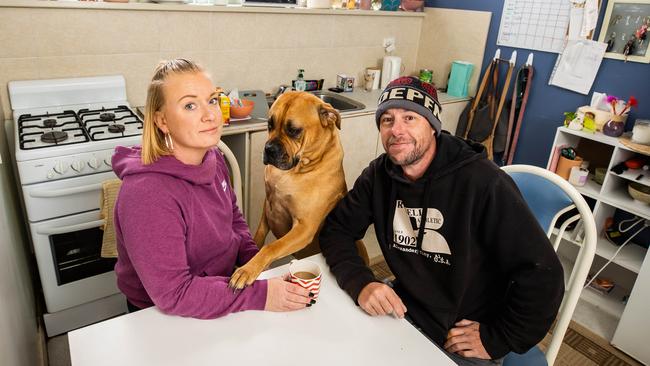Young people who don’t have wealthy parents are facing a lifetime of renting
Many younger people have been permanently pushed out of the property market – and forced into rentals – by the pandemic. This is why.
SA News
Don't miss out on the headlines from SA News. Followed categories will be added to My News.
Young South Australians without wealthy parents are facing a lifetime of renting, with little prospect of owning property, say housing experts.
Researchers have found escalating house prices increasingly are putting home ownership beyond the reach of people aged under 35.
They believe the minimum cost of entering the property market is approaching $160,000, making it difficult for members of the so-called Millennials and Gen Z generations to buy their own homes.
One recent Adelaide-based study found Millennials were being locked out of the housing market by older people, who were holding on to their houses for financial security.
This was leaving growing numbers of younger people struggling to buy family homes or find rental accommodation during an unprecedented housing crisis.
UniSA housing expert Professor Chris Leishman said while the children of wealthy parents would be able to buy property, those without financial support would struggle.
“A 30-year-old person with parents who have no money is in serious trouble whereas someone with parents who are prosperous and own properties will not struggle as much if they are given help,” he said.

Prof Leishman said a property boom during the pandemic had left new home buyers facing bigger mortgage payments as interest rates continued to climb.
“Mortgage interest rates sank to record lows during the pandemic, largely as a consequence of the Reserve Bank’s record low cash rate,” he said.
“The result was a boom in demand for housing, and escalating prices. Then there was the so-called fear of missing out (FOMO) which fuelled demand even further.”
Prof Leishman said, as a result, the current median house price in Adelaide was $650,000.
“Buyers now need a $130,000 deposit and have a $29,000 stamp duty liability,” he said.
“So, cash savings of $159,000 are needed to buy – up from around $117,000 just before the pandemic.”
Prof Leishman said if interest rates had stayed at 2 per cent, the monthly payment would be $1900.
“However, assuming that mortgage rates will hit 5 per cent very soon, this implies a monthly payment of about $2800,” he said. “So, this really is a perfect storm.”
Prof Leishman said first home buyers needed at least $40,000 than before the pandemic. “Even then, their monthly repayments will be 33 per cent higher at around $2800, compared to $2100.
“This is why entering home ownership is now an unlikely prospect for a larger proportion of people than before the pandemic, especially young people.”





